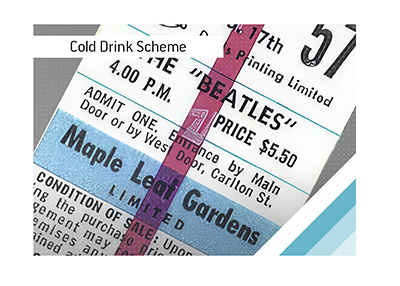Spanish Flu Outbreak Caused The Cancellation of the Stanley Cup Finals
Published on May 8th, 2025 11:22 am ESTWritten By: Dave Manuel
 If you look at the Stanley Cup, there is a part of the engravings that says:
If you look at the Stanley Cup, there is a part of the engravings that says:1919
MONTREAL CANADIENS
SEATTLE METROPOLITANS
SERIES NOT COMPLETED
1919 was the ONLY year in the history of the Stanley Cup where the Cup wasn't handed out to a winning team.
In 1919, the Canadiens and Metropolitans were duelling in what some hockey historians consider to be one of the best Stanley Cup Finals of all time.
After the first five games of the series, the two teams were tied up 2-2-1 (in those days, a game was declared a tie after a 20 minute period of overtime).
A sixth and deciding game was scheduled for April 1st, 1919, though it would never be played due to an outbreak of the Spanish Flu.
Prior to Game 6 taking place, players from both teams caught the flu and were hospitalized. The Spanish Flu was a devastating and potentially life-threatening illness, and Game 6 was eventually cancelled.
The Canadiens only had three players escape the flu - they requested players from other teams in the league to finish out the series, though their request was denied by the league.
In fact, Joe Hall of the Montreal Canadiens would pass away from the flu, while team Manager George Kennedy would pass away some years later due to complications from the flu.
It was an absolute tragedy and there was no consideration given to continuing the series.
The Canadiens manager attempted to forfeit the series in an act of good sportsmanship so that the Metropolitans could celebrate their victory, though the Metropolitans refused, saying that they couldn't accept the victory in the face of such a devastating illness.
This was a series that included some of the greatest players in the history of the NHL - in fact, there were eight future Hall of Famers playing in the series, including Georges Vezina and others.
In the end, this series remains the only time that the Stanley Cup wasn't given out in the history of the league.




